WARTIME SEXUAL SLAVERY
입력 2019.04.19 (15:22)
수정 2019.04.19 (15:41)
읽어주기 기능은 크롬기반의
브라우저에서만 사용하실 수 있습니다.
[Anchor Lead]
A legal suit filed against the Ministry of Foreign Affairs over the partial disclosure of the 2015 agreement, between Korea and Japan on the so-called "final and irreversible settlement" of the wartime sex slavery issue, has been underway so far. The court of first instance ruled that the document must be disclosed to the public. However, the verdict was overturned in the second trial on April 18. The judges said that if disclosed, the document in question might seriously undermine Korea's national interests.
[Pkg]
The lawsuit against the Ministry of Foreign Affairs was initially filed after Korea and Japan signed an agreement in 2015 on the settlement of the wartime sex slavery issue. The victims wanted to know if Japan had acknowledged the forcible conscription of Korean women. In January 2017, the court of first instance ruled in favor of the victims, accepting their demand that the agreement be partially disclosed. However, the Ministry of Foreign Affairs opted to appeal to a higher court instead of disclosing the document, and the verdict was eventually overturned in the second trial. The judges based their ruling on whether or not the disclosure of the document may be against Korea's national interest. The second ruling said that the disclosure of the document may seriously damage trust between Korea and Japan and weaken Korean government's diplomatic credibility. The judges mentioned the word "diplomacy" 14 different times to explain their decision, which they said was based on concerns that the disclosure of a sensitive diplomatic document could potentially discourage other nations from holding negotiations with Korea. The victims of Japanese wartime sex slavery blasted the ruling by saying that the judges' reasoning that cited Korea's national interest undermine the public's right to truth and the victims' dignity and basic human rights.
[Soundbite] SONG KI-HO(ATTORNEY (FILED SUIT OVER DOCUMENT DISCLOSURE)) : "I will discuss and analyze the verdict with the victims and appeal."
Even after the 2015 agreement was signed, the Japanese government has continued to openly state that there is no evidence of the Japanese military conscripting the victims by force. If Korea's Supreme Court upholds the second verdict, the nation will not know whether or not Japan had acknowledged forced conscription until the year 2045.By then, most of the victims will not be around.
A legal suit filed against the Ministry of Foreign Affairs over the partial disclosure of the 2015 agreement, between Korea and Japan on the so-called "final and irreversible settlement" of the wartime sex slavery issue, has been underway so far. The court of first instance ruled that the document must be disclosed to the public. However, the verdict was overturned in the second trial on April 18. The judges said that if disclosed, the document in question might seriously undermine Korea's national interests.
[Pkg]
The lawsuit against the Ministry of Foreign Affairs was initially filed after Korea and Japan signed an agreement in 2015 on the settlement of the wartime sex slavery issue. The victims wanted to know if Japan had acknowledged the forcible conscription of Korean women. In January 2017, the court of first instance ruled in favor of the victims, accepting their demand that the agreement be partially disclosed. However, the Ministry of Foreign Affairs opted to appeal to a higher court instead of disclosing the document, and the verdict was eventually overturned in the second trial. The judges based their ruling on whether or not the disclosure of the document may be against Korea's national interest. The second ruling said that the disclosure of the document may seriously damage trust between Korea and Japan and weaken Korean government's diplomatic credibility. The judges mentioned the word "diplomacy" 14 different times to explain their decision, which they said was based on concerns that the disclosure of a sensitive diplomatic document could potentially discourage other nations from holding negotiations with Korea. The victims of Japanese wartime sex slavery blasted the ruling by saying that the judges' reasoning that cited Korea's national interest undermine the public's right to truth and the victims' dignity and basic human rights.
[Soundbite] SONG KI-HO(ATTORNEY (FILED SUIT OVER DOCUMENT DISCLOSURE)) : "I will discuss and analyze the verdict with the victims and appeal."
Even after the 2015 agreement was signed, the Japanese government has continued to openly state that there is no evidence of the Japanese military conscripting the victims by force. If Korea's Supreme Court upholds the second verdict, the nation will not know whether or not Japan had acknowledged forced conscription until the year 2045.By then, most of the victims will not be around.
■ 제보하기
▷ 카카오톡 : 'KBS제보' 검색, 채널 추가
▷ 전화 : 02-781-1234, 4444
▷ 이메일 : kbs1234@kbs.co.kr
▷ 유튜브, 네이버, 카카오에서도 KBS뉴스를 구독해주세요!
- WARTIME SEXUAL SLAVERY
-
- 입력 2019-04-19 15:24:36
- 수정2019-04-19 15:41:10
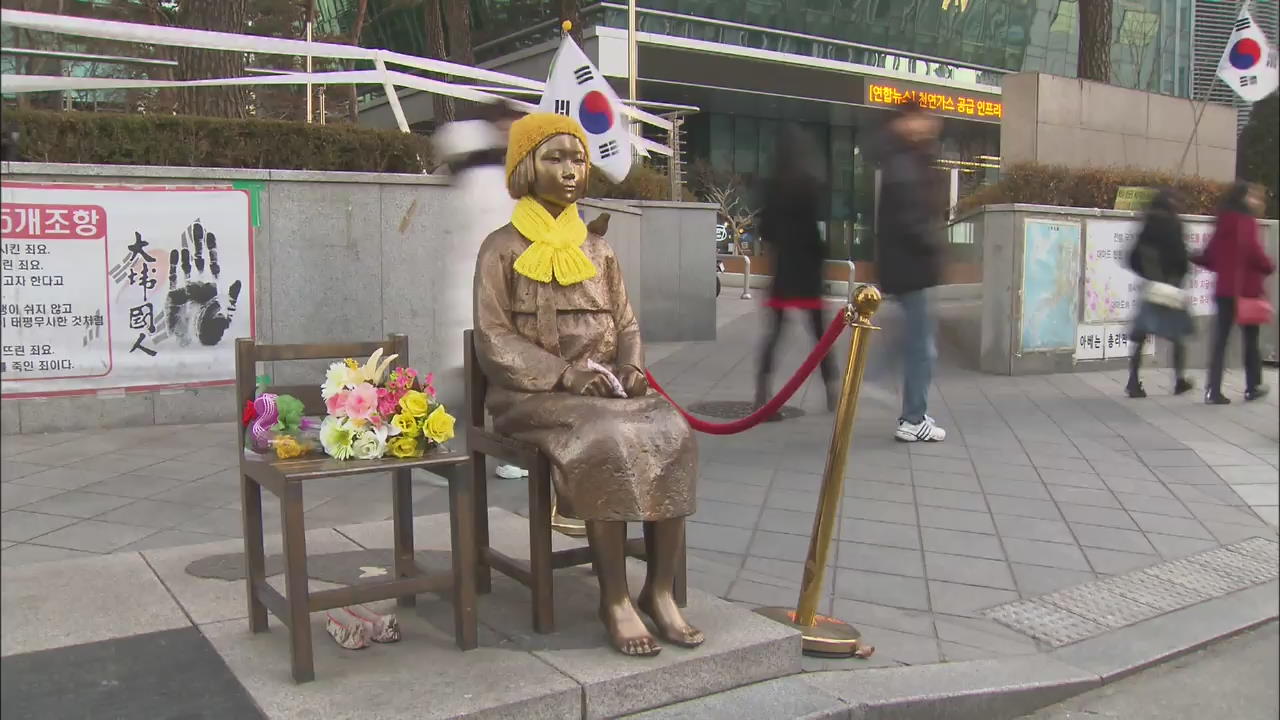
[Anchor Lead]
A legal suit filed against the Ministry of Foreign Affairs over the partial disclosure of the 2015 agreement, between Korea and Japan on the so-called "final and irreversible settlement" of the wartime sex slavery issue, has been underway so far. The court of first instance ruled that the document must be disclosed to the public. However, the verdict was overturned in the second trial on April 18. The judges said that if disclosed, the document in question might seriously undermine Korea's national interests.
[Pkg]
The lawsuit against the Ministry of Foreign Affairs was initially filed after Korea and Japan signed an agreement in 2015 on the settlement of the wartime sex slavery issue. The victims wanted to know if Japan had acknowledged the forcible conscription of Korean women. In January 2017, the court of first instance ruled in favor of the victims, accepting their demand that the agreement be partially disclosed. However, the Ministry of Foreign Affairs opted to appeal to a higher court instead of disclosing the document, and the verdict was eventually overturned in the second trial. The judges based their ruling on whether or not the disclosure of the document may be against Korea's national interest. The second ruling said that the disclosure of the document may seriously damage trust between Korea and Japan and weaken Korean government's diplomatic credibility. The judges mentioned the word "diplomacy" 14 different times to explain their decision, which they said was based on concerns that the disclosure of a sensitive diplomatic document could potentially discourage other nations from holding negotiations with Korea. The victims of Japanese wartime sex slavery blasted the ruling by saying that the judges' reasoning that cited Korea's national interest undermine the public's right to truth and the victims' dignity and basic human rights.
[Soundbite] SONG KI-HO(ATTORNEY (FILED SUIT OVER DOCUMENT DISCLOSURE)) : "I will discuss and analyze the verdict with the victims and appeal."
Even after the 2015 agreement was signed, the Japanese government has continued to openly state that there is no evidence of the Japanese military conscripting the victims by force. If Korea's Supreme Court upholds the second verdict, the nation will not know whether or not Japan had acknowledged forced conscription until the year 2045.By then, most of the victims will not be around.
A legal suit filed against the Ministry of Foreign Affairs over the partial disclosure of the 2015 agreement, between Korea and Japan on the so-called "final and irreversible settlement" of the wartime sex slavery issue, has been underway so far. The court of first instance ruled that the document must be disclosed to the public. However, the verdict was overturned in the second trial on April 18. The judges said that if disclosed, the document in question might seriously undermine Korea's national interests.
[Pkg]
The lawsuit against the Ministry of Foreign Affairs was initially filed after Korea and Japan signed an agreement in 2015 on the settlement of the wartime sex slavery issue. The victims wanted to know if Japan had acknowledged the forcible conscription of Korean women. In January 2017, the court of first instance ruled in favor of the victims, accepting their demand that the agreement be partially disclosed. However, the Ministry of Foreign Affairs opted to appeal to a higher court instead of disclosing the document, and the verdict was eventually overturned in the second trial. The judges based their ruling on whether or not the disclosure of the document may be against Korea's national interest. The second ruling said that the disclosure of the document may seriously damage trust between Korea and Japan and weaken Korean government's diplomatic credibility. The judges mentioned the word "diplomacy" 14 different times to explain their decision, which they said was based on concerns that the disclosure of a sensitive diplomatic document could potentially discourage other nations from holding negotiations with Korea. The victims of Japanese wartime sex slavery blasted the ruling by saying that the judges' reasoning that cited Korea's national interest undermine the public's right to truth and the victims' dignity and basic human rights.
[Soundbite] SONG KI-HO(ATTORNEY (FILED SUIT OVER DOCUMENT DISCLOSURE)) : "I will discuss and analyze the verdict with the victims and appeal."
Even after the 2015 agreement was signed, the Japanese government has continued to openly state that there is no evidence of the Japanese military conscripting the victims by force. If Korea's Supreme Court upholds the second verdict, the nation will not know whether or not Japan had acknowledged forced conscription until the year 2045.By then, most of the victims will not be around.
이 기사가 좋으셨다면
-
좋아요
0
-
응원해요
0
-
후속 원해요
0










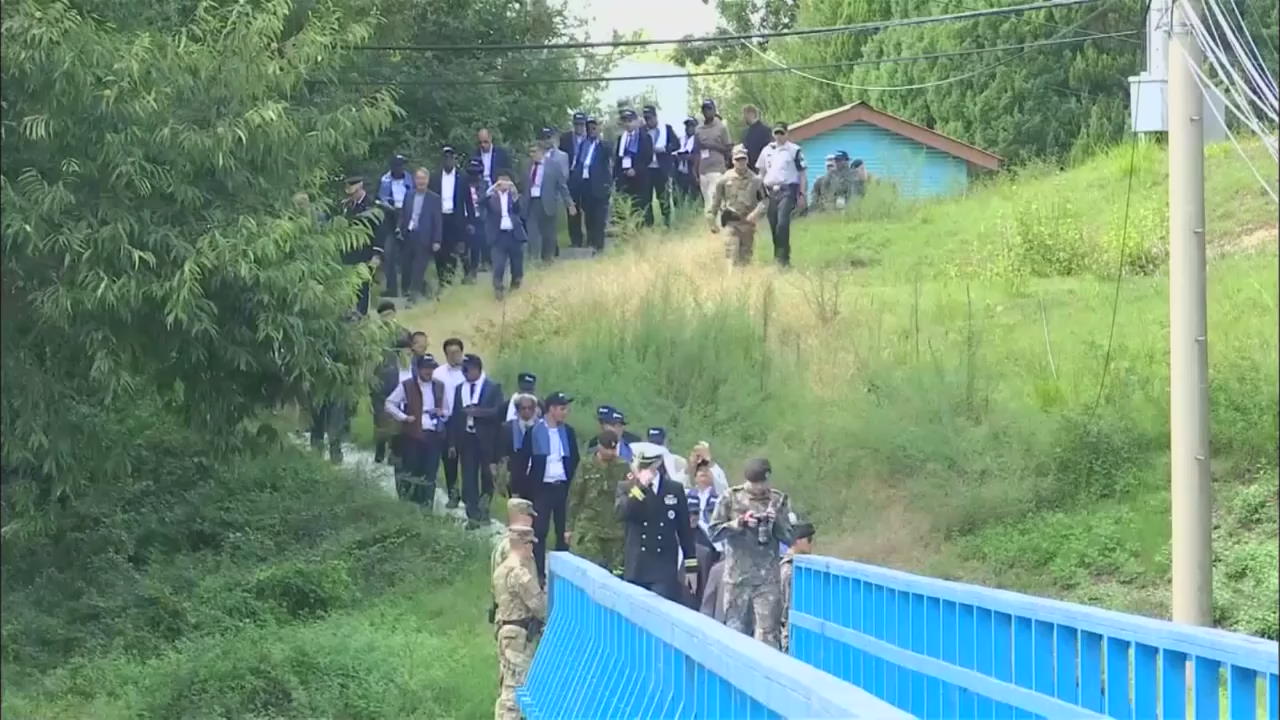
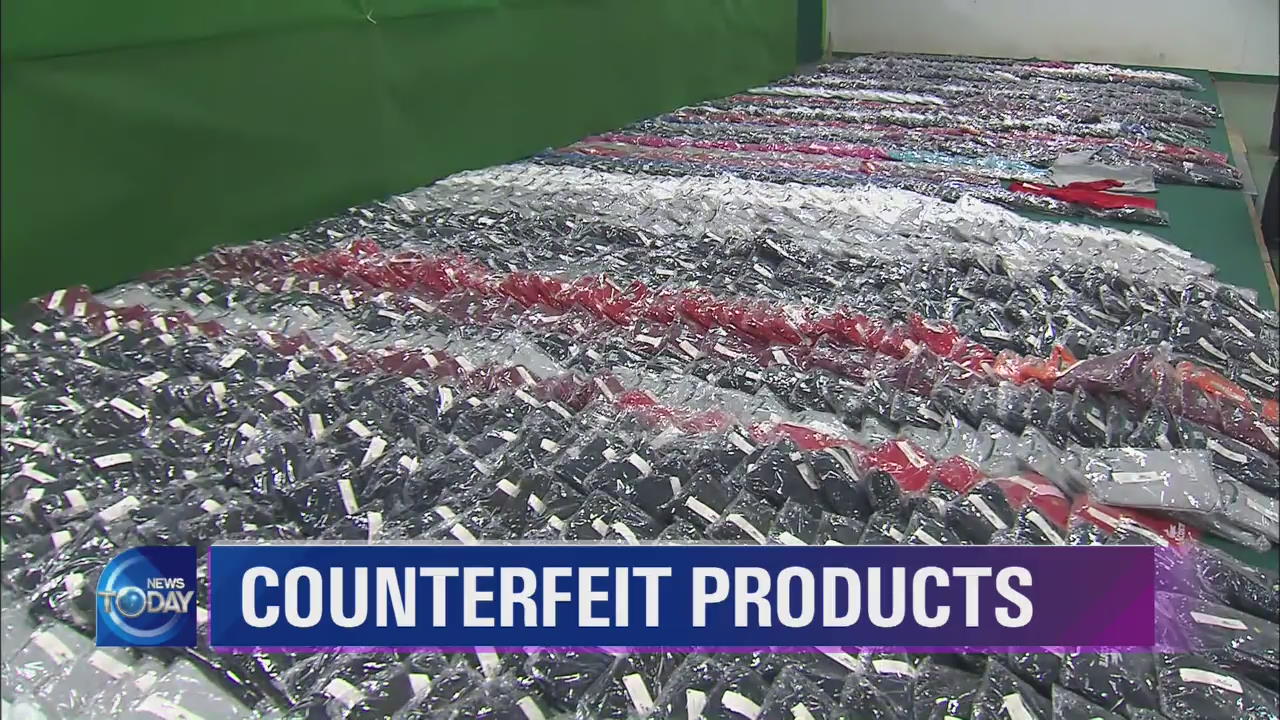
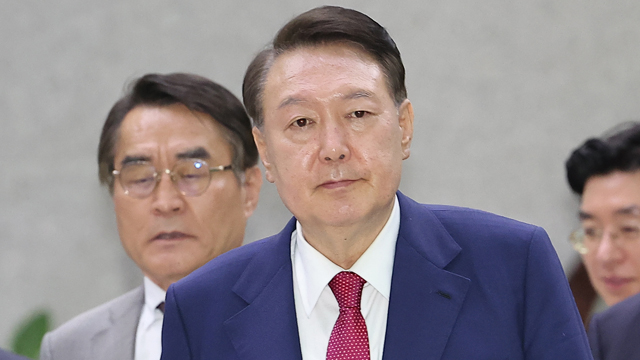
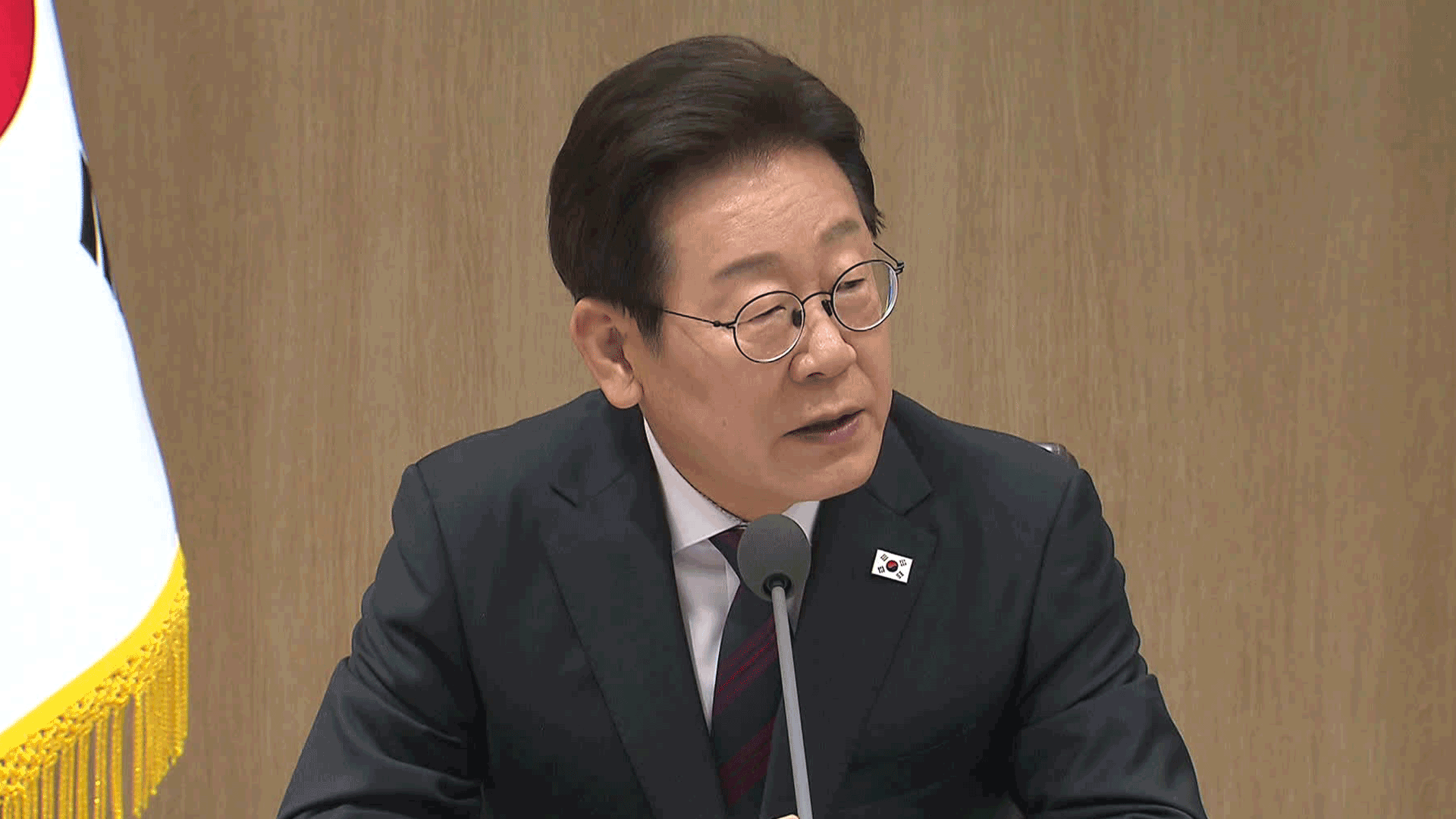
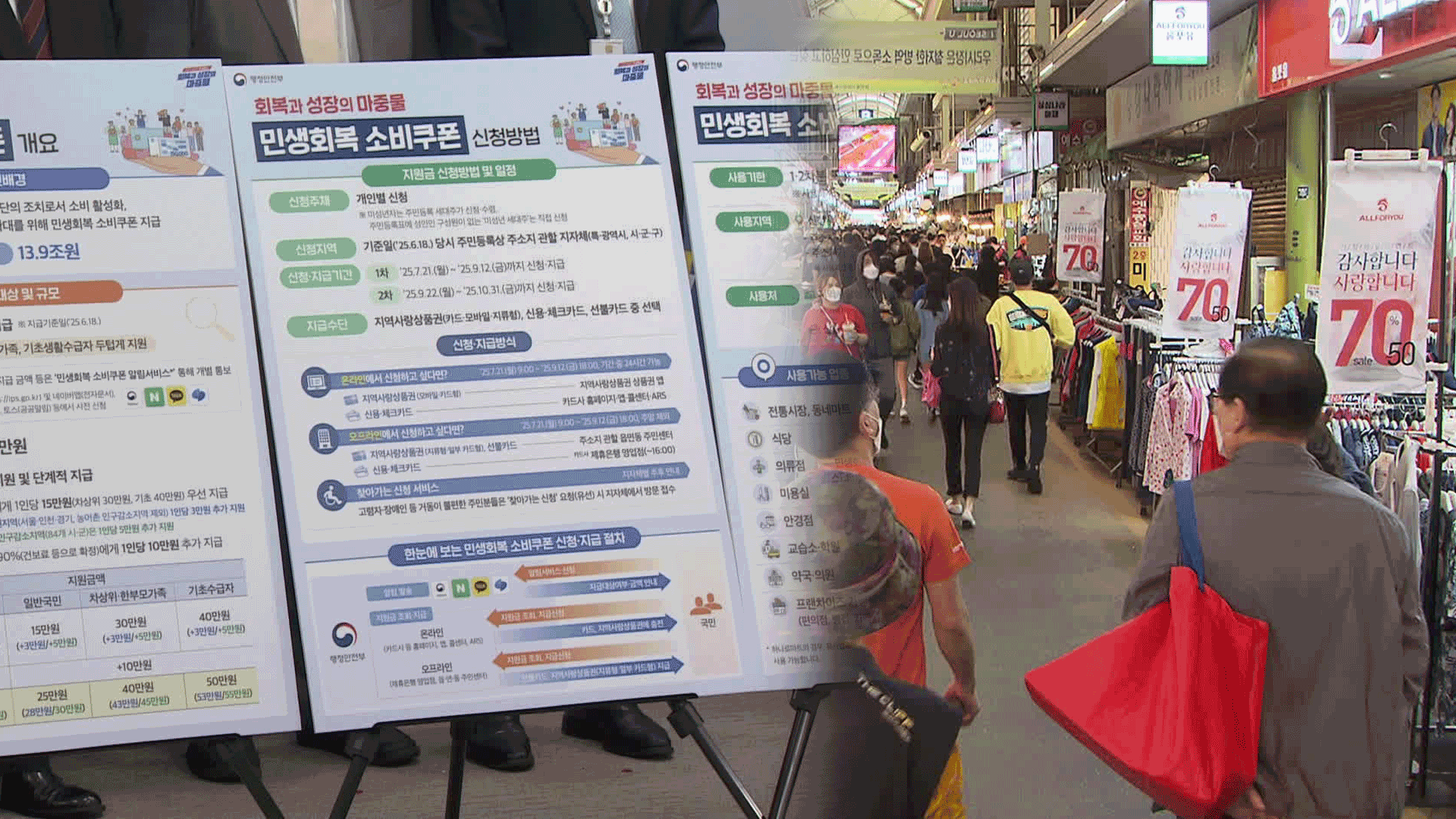
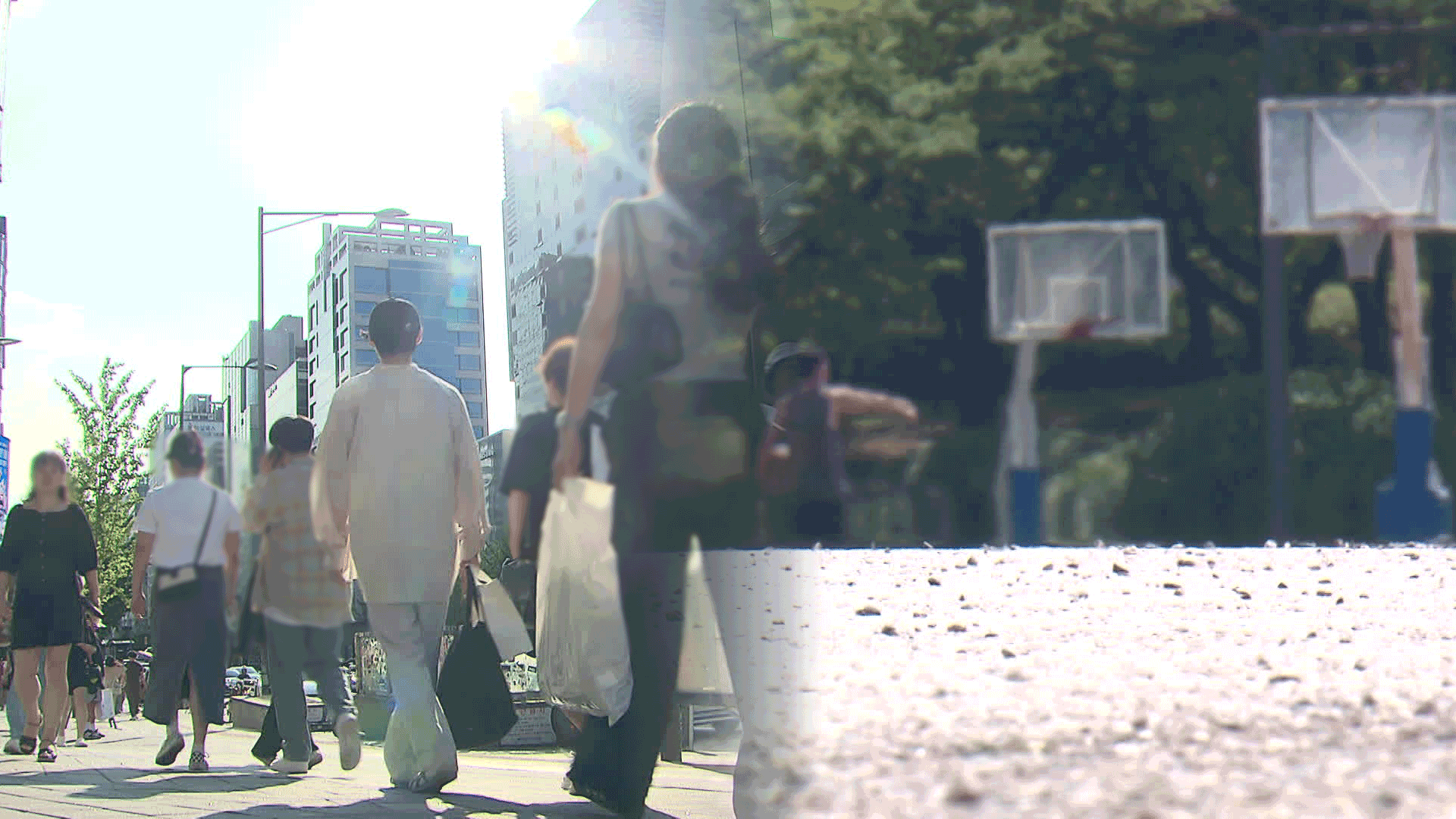

이 기사에 대한 의견을 남겨주세요.